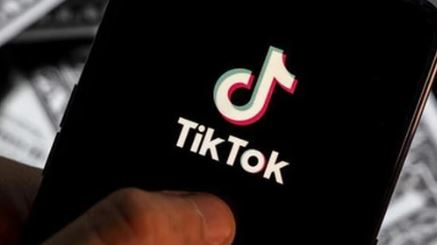Google Calendar removes Pride, Black History Month and other DEI dates
02/13/2025 / By Cassie B.

- Google Calendar removed DEI observances like Pride Month and Black History Month, citing scalability and consistency concerns.
- The decision aligns with Trump administration policies and reflects pushback against woke cultural agendas.
- Critics accuse Google of capitulating to political pressure, while supporters praise the move as a return to practicality.
- Google now relies on a standardized list of public holidays, requiring users to manually add cultural events.
In a move that is hopefully signaling a broader cultural shift, Google Calendar has removed a host of diversity, equity, and inclusion (DEI) observances, including Pride Month, Black History Month, and Indigenous Peoples’ Month, from its platform.
The decision reflects a growing pushback against what critics describe as an overreach of “woke” cultural agendas. With over 500 million users worldwide, Google Calendar will now only display official public holidays and national observances, a change the company says was necessary to maintain consistency and scalability.
The move comes as President Donald Trump’s administration continues to dismantle DEI initiatives across federal agencies, with Google appearing to align itself with this new political reality. Critics of the decision have accused the tech giant of capitulating to Trump’s policies, while supporters praise the company for refusing to indulge what they see as increasingly absurd and niche “holidays” like International Pronoun Day and Intersex Awareness Day.
Google’s decision to streamline its calendar offerings was driven by practicality, according to a company spokesperson. “Maintaining hundreds of moments manually and consistently globally wasn’t scalable or sustainable,” the spokesperson said. The company now relies on timeanddate.com, a Norway-based website, to provide a standardized list of public holidays and national observances. Users who wish to track cultural events like Pride Month or Black History Month must manually add them to their calendars.
The change has sparked outrage among some users, who flooded Google’s support pages with complaints. One user accused the company of “capitulating to fascism,” while another labeled Google as “Nazi sympathizers.” Despite the backlash, the decision appears to resonate with a growing segment of the population weary of what they perceive as an overemphasis on identity politics.
Google’s broader alignment with Trump policies
Google’s calendar changes are part of a larger trend within the company to align with the Trump administration’s policies. Earlier this year, Google announced it would scrap its diversity hiring goals, citing recent court decisions and Trump’s executive orders aimed at curbing DEI programs. The company has also made notable changes to its Maps app, including renaming the Gulf of Mexico to the “Gulf of America” and reverting to the name “Mount McKinley” for Alaska’s Denali peak, both changes reflecting Trump’s preferences.
These adjustments have not gone unnoticed. Google CEO Sundar Pichai attended Trump’s inauguration alongside other tech leaders like Elon Musk and Mark Zuckerberg, signaling a newfound allegiance to the administration. Critics argue that Google’s actions represent a capitulation to political pressure, while supporters see it as a long-overdue correction to an increasingly polarized cultural landscape.
Is the country coming to its senses?
The removal of DEI dates from Google Calendar raises broader questions about the direction of American culture. For years, corporations have embraced diversity initiatives with fervor, often at the expense of practicality and common sense. Google’s decision to step back from this trend suggests a growing recognition that such efforts may have gone too far.
While some lament the loss of cultural observances, others see it as a return to sanity. By focusing on official holidays and allowing users to customize their calendars, Google has struck a balance between inclusivity and practicality.
As the nation grapples with the role of identity politics in public life, Google’s move may signal a broader cultural shift. Whether this represents a rejection of “wokeism” or simply a pragmatic adjustment remains to be seen. But one thing is clear: in a divided America, even a calendar can become a battleground.
Sources for this article include:
Submit a correction >>
Tagged Under:
awakening, Big Tech, Black History Month, culture wars, DEI, Google, Google Calendar, Holidays, identity politics, left cult, pride month, progress, social justice, tech giants, technocrats, woke mob, wokies
This article may contain statements that reflect the opinion of the author
RECENT NEWS & ARTICLES
COPYRIGHT © 2017 BigTech.news
All content posted on this site is protected under Free Speech. BigTech.news is not responsible for content written by contributing authors. The information on this site is provided for educational and entertainment purposes only. It is not intended as a substitute for professional advice of any kind. BigTech.news assumes no responsibility for the use or misuse of this material. All trademarks, registered trademarks and service marks mentioned on this site are the property of their respective owners.



















